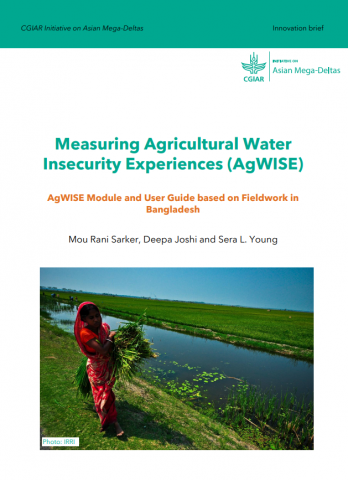Measuring Agricultural Water Insecurity Experiences (AgWISE): AgWISE Module and User Guide based on Fieldwork in Bangladesh
Abstract
Water is integral to food systems. Assessing agricultural water [in]security provides a comprehensive understanding of how water influences agricultural development. Water availability varies geographically, but across regions there are marked inequalities in access to and use of water, which are shaped by policy incoherence, poor management and governance of water resources; political, social, economic factors including intersecting inequalities by gender, class, ethnicity, caste, race, age, disability etc. To date, there is very little data that provides insights into the complexity of these intersectional inequalities in productive water access and use for agricultural activities. Building on the Water Insecurity Experiences (WISE) Scales framework, we designed an Agricultural Water Insecurity Experience (AgWISE) module to evaluate productive water insecurity, i.e. analyse issues related to the adequacy, reliability, accessibility, and safety of water related to agriculture. The AgWISE module provide a more holistic understanding of agrifood systems water insecurity – focusing on crop, kitchen gardens, livestock, and fisheries, understand water insecurity from an intersectional perspective, i.e. how gender, class, age and other contextual factors impact the experience of productive water access, use and control, as well as document the material (physical and economic) and psychological impacts of these challenges.

